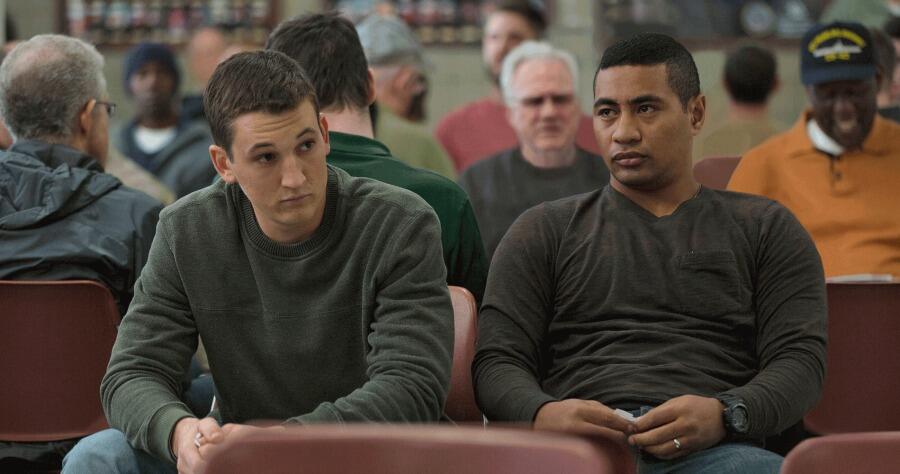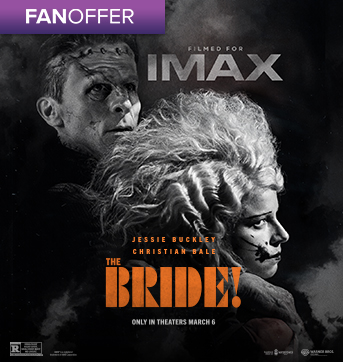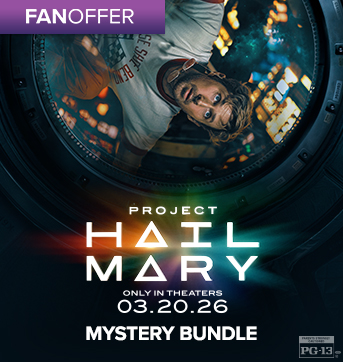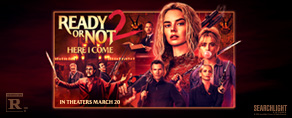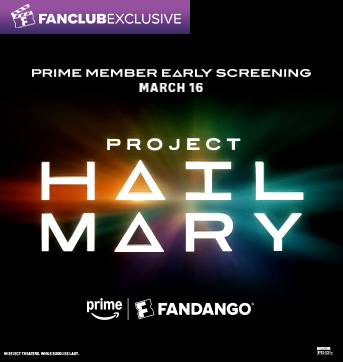
Jason Hall isn't the first actor-turned-director, but he's definitely part of a growing trend of former actors becoming stars through their writing instead of a leading role.
There's Taylor Sheridan, who turned to writing when his acting career stalled. Now he's the voice behind critically acclaimed movies like Sicario, Hell or High Water and Wind River, his directorial debut. Like Sheridan, Jason Hall's acting career wasn't as fruitful as he had hoped, and so he turned to writing, too.
Two movies in, he wrote American Sniper.
Now he's an Oscar-nominated writer in hot demand, who is making his directorial debut on Thank You for Your Service (in theaters October 27), another powerfully visceral look at the impact war has on the soldiers who fight in it and the people they eventually return home to. Fandango caught up with Hall to talk about his new film's connections to Americn Sniper, plus the pivotal role Steven Spielberg played and more.
Fandango: You’ve said Thank You for Your Service is a sort of spiritual sequel to American Sniper. How so?
Jason Hall: Well I think this is the part where you have to turn inward, you know? I've called American Sniper, Achilles, and this is Odysseus. And so the return home of the warrior -- it's about home coming. It's about the return to self. And the warriors blessed with all the masculine gifts of heroism. And then the warrior has to turn inside. It's finding a way back into the light and that's what this movie is about.
Fandango: Do you feel like you had more to say after American Sniper? Is that why you did Thank You for Your Service?
Hall: I did. And honestly that's a great question because I was writing this draft before we filmed Sniper, so I was done writing Sniper when I was writing this. But going off and filming it, something comes to life in you when you realize things that you didn't on the page. And you realize the depth of humanity of these guys and how personal this struggle is. So after we filmed American Sniper I got back at it and was finally able to crack the script.

Fandango: The first bit of news that was out there about this project claimed you were writing the screenplay and Steven Spielberg was potentially interested in directing it. So how did you go from writing it to writing and directing it?
Hall: It was a long journey man. You know, we worked quite a bit on Sniper before he gave me the book because he was gonna direct Sniper. And then we worked on this for a good year and a half, two years. And I think he came to trust me over that period of time. It was just he and I sitting in a room working it out.
Fandango: It's gotta be pretty heady for a first-time director to be working with Steven Spielberg in this kind of capacity. What did you take away from that? What did he teach you as a director or what was his biggest piece of advice?
Hall: He was super gracious. You know? The whole way through from casting to the shooting aspects of it. And he supported my vision for it and I called him whenever I had a question or felt like I was uncertain about something. There was a casting decision with a Samoan character, and I don't think I would have gotten to cast that Samoan at any other studio. But Steven saw my passion for him and he supported it.
Fandango: It has to be great to have Steven Spielberg on speed dial as you direct your first movie.
Hall: Yeah, when you get a call from him after the first day on the second day shooting, he then watched the first day of dailies and he's got some notes and ideas. And so you're getting Steven Spielberg looking at your first day of shooting. Which I had never shot anything before, ever. So, yeah. That was a call where I'm on pins and needles.
Fandango: There’s an authenticity with this movie that’s rare in terms of just how close you feel to the characters’ struggles. Was that intentional?
Hall: Yes, I had a very specific vision for this, on how to keep the directing out of it almost. How to take anything that I thought was cool or clever or smart on my part as the director out so that the audience felt closer to the story and felt closer to the people. And almost got lost in the fact that this wasn't real. If at any moment I had a cool shot or I was like, "oh, that's cool. Look at how cool we are, or smart, or clever." I didn't do it. And if I did do it, I took it out in editing.
Fandango: What’s one example of that?
Hall: Well, I think it's a process and I think you have to do it across the board. I mean, like making sure every person we fit in the VA was a veteran because veterans recognize the faces of other veterans. Because in war fighting, there's a genetic adaptation. So I believe warriors recognize other warriors. We had pictures on the wall of the VA that were fallen soldiers. We represented everything as it was represented or tried to as it was represented in the book, which was a miraculous work of journalism by David Finkel.
Fandango: How did Finkel’s book influence the way you made the movie?
Hall: Yeah, well, he followed them into war, earned their trust. He lived with them over there for a year. Then he followed these guys home and he lived with them here for 10 months. So we were able to get a level of authenticity and language authenticity in the sort of factual events that occurred in the history of everybody that was around us.
So we just had a level of depth and knowledge here that we tried to bring to the film. We tried to shoot it that way, too, in a very close and personal, realistic way. I love some of these old American social realism and neo-realism films, the Italian neo-realism films. Russolini, and you know I love these older war films like Battle of Algiers and even Best Years of Our Lives. The closer it can be to real, the closer it can be to authentic and make us feel like we're in the room with them, the more excited I get.
Fandango: What's the conversation you want audiences having when they leave the theater?
Hall: I want them to understand in a deeper way what it's like for these guys. I want them to be able to take this experience of seeing the movie home and reach out to any veteran in their life, and tell them they saw the movie, and see if they can start a conversation around it. Because if you can open the door just a little bit to these guys, and they realize that you have some deeper understanding, you've learned some deeper understanding, or come to a greater knowledge, they'll more often than not decide to trust you and open the door. But too often, we just decide to say, "Thank you for your service." That's a cheap way out for us. I really think we're uncomfortable to take any of it on. So I want people to start a conversation.
Thank You for Your Service is in theaters beginning October 27. You can snag your tickets right here at Fandango.

